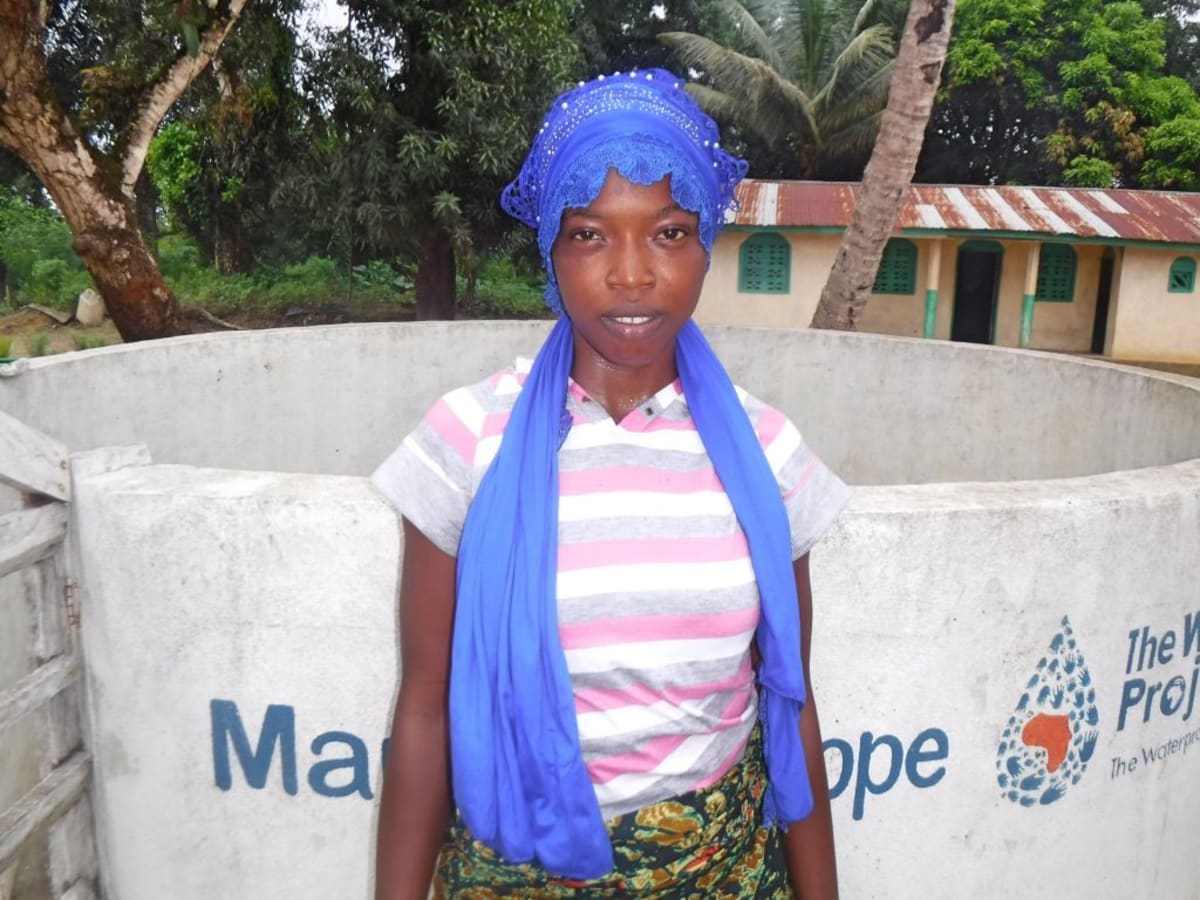Robay Village is located in Kamasondo Chiefdom along the Port Loko Highway. Of the communities in Kamasando, Robay is the most vulnerable to the water crisis. Robay community members are dependent on swamp water as their main source of water.
People have to walk almost a mile to reach the swamp water each day. This distance is a great challenge to the community, especially for school-going children. The time kids spend fetching water causes them to be late for school. Women find it difficult to manage the little available water they have at their various houses. Children and women always worry about how and where to fetch good water for their families each morning and afternoon. Yet, they have no option but to drink the swamp water because it the only water source available to them.
"We suffer a lot to fetch water for domestic purposes and drinking. Early in the morning, I have to walk a long distance to the swamp and fetch water before preparing for school," said primary school student Kadiatu.
"The water crisis in Robay village is really hindering my education because, every morning, I have to spend much time to fetch water before always going to school late. Because of the water shortage in Robay village, sometimes I end the day without taking a bath. It is a difficult situation, but I have to endure it because I have no option."
The long walks to the swamp affect the adults' schedules too. Women are supposed to go to their farms early in the morning to work, but because of the water challenge, they arrive at their farms later in the day. Late in the afternoon, women hurry back to the village after their farm work to fetch more water and prepare food for their families. Students have little time to study when they get home because they are tired by the end of the day due to spending so much energy fetching water for their families.
"I hardly get time to read my school notes at home, because I used almost all my energies on domestic activities., especially fetching water. Because of this, I always struggle to pass my school examinations," said Kadiatu.
What we can do:
New Well
We will be drilling is centrally located and will relieve many people of the long journey to fetch water. This location is a center point of Robay Village where everyone in that community can easily access within the shortest time. Anyone can easily walk to access this water point without much energy required. There is no risk or danger along the way to access this proposed water point. This project will relieve the people here of their water challenges.
Our team will drive over the LS200 mud rotary drill rig and set up camp for a couple of nights. Once the well is drilled to a sufficient water column, it will be cased, developed, and then tested. If these tests are positive, our mechanics will install a new India Mark II pump.
This community has been pushed to open contaminated well for their water. By drilling this borehole, Tholmossor Community will be provided with plenty of accessible clean drinking water.
Training
There will be hygiene and sanitation training sessions offered for three days in a row.
Community members will learn how to make a hands-free handwashing station called the "tippy-tap." We will use these tippy taps for handwashing demonstrations and will also teach about other tools like dish racks and the importance of properly penning in animals. We will highlight the need to keep restrooms clean, among many other topics.
This training will also strengthen a water user committee that will manage and maintain this new well. They will enforce proper behavior and report to us whenever they need our help in solving a serious problem, like a pump breakdown.

 Borehole Well and Hand Pump
Borehole Well and Hand Pump
 Rehabilitation Project
Rehabilitation Project































